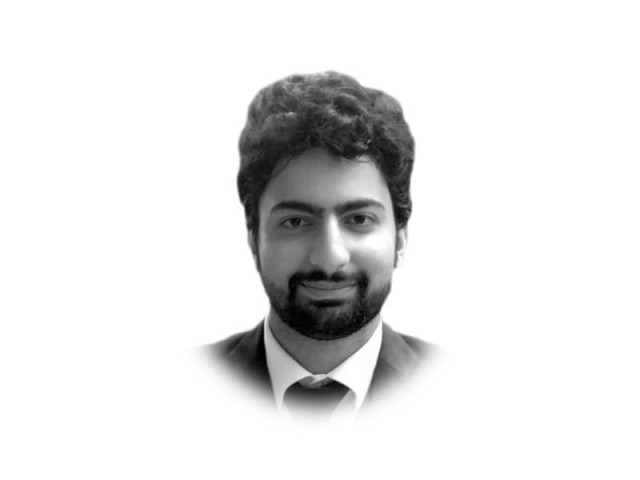The norms that guide us
September 15th is celebrated around globally as International Democracy Day

The writer is a lawyer based in Lahore and also teaches at the Lahore University of Management Sciences. He holds an LLM from New York University where he was a Hauser Global Scholar. He tweets @HNiaziii
Pakistan is a long way from that ideal. It is a country that can best be described as a fragile democracy — fulfilling only the minimum requirements of the universal ideal while compromising on many others. Just consider the fact that on the day when democracy was supposed to be celebrated the highest court in the land was considering if critics of its dam fund could be considered traitors. Consider also how freedom of the press is, by all accounts, at an all-time low; religious minorities clamour for basic freedoms from discrimination; while the right to fair trial is considered more of a hassle rather than a basic right. Yet, there are deeper problems with our democracy which have to do with certain unwritten rules that must be followed in order for it to work. No Constitution, no law, can guarantee them, but, without them the system will never reach its full potential. One such unwritten rule is known as the ‘norm of mutual toleration.’
As described by Steven Levitsky and Daniel Ziblatt, Professors at Harvard University: mutual toleration is a norm according to which politicians in a democracy accept that their opponents are just as legitimate as they are; that partisan rivals are equally loyal citizens of the country. So, while political rivals may disagree on many things, they must accept that this disagreement is a legitimate and necessary part of the democratic process. This norm breaks down when, for example, one party calls the other ‘traitors’, ‘criminals’, or a host of other pejoratives in an attempt to delegitimise their views. As Levitsky and Ziblatt explain, it was adherence to this unwritten rule that allowed American democracy to prosper for much of the 20th century, while it was the breakdown of this very norm that led to Donald Trump and the increasing polarisation that makes up American democracy today.
Pakistan may have completed another successful democratic transition, yet it has drifted further away from adhering to a norm of mutual toleration. The PTI has constantly labelled its opponents, such as the PML-N, as traitors or criminals, in an attempt to play down their legitimacy. The PML-N and the PPP have responded in kind with claims of rigging and attempts to delegitimise the PTI’s electoral victory.
The worst form of our lack of tolerance was on display when Kulsoom Nawaz was fighting for her life in London. That entire episode displayed a complete breakdown of any kind of tolerance and, I dare say, empathy. Political opponents traded barbs on the reality of her illness (left undoubtedly with their foot in their mouth now), with even Aitzaz Ahsan questioning whether this was just a stunt being pulled by the PML-N to gain sympathy. This is how low our politics has come, where even mortal illness is questioned as legitimate. What hope does the norm of mutual toleration have in such an atmosphere?
If there is little hope of tolerance amongst political rivals, then there is little hope of things actually getting done in our democracy. Consider how the breakdown of norms of mutual toleration led to a complete blocking of the nomination of Merrick Garland for the Supreme Court of the United States — a slight that is being repaid in kind by Democrats with Brett Kavanaugh. When you stop seeing your opponents as legitimate you start buckling down attempts to make sure nothing they do – no matter how valuable for the country — gets done. We saw this happen only a week ago when the PTI nominated Atif Mian for the EAC. Despite the fact that this was a commendable move, members of the PML-N rallied to blockade the appointment, while the PPP refused to reach out to give the PTI its support.
Norms of mutual toleration lie at the heart of a democratic system, rooted in the idea of free expression. They are important not just for politicians to follow, but also for their supporters. Joining or supporting a political party does not mean we give up our ability to think rationally about the greater good of the country. Tolerance of disagreement is a necessity in democracy, if we do not abide by it we will forever remain a fragile democracy — stagnating in a pool of anger and hate.
Published in The Express Tribune, September 18th, 2018.
Like Opinion & Editorial on Facebook, follow @ETOpEd on Twitter to receive all updates on all our daily pieces.















COMMENTS
Comments are moderated and generally will be posted if they are on-topic and not abusive.
For more information, please see our Comments FAQ